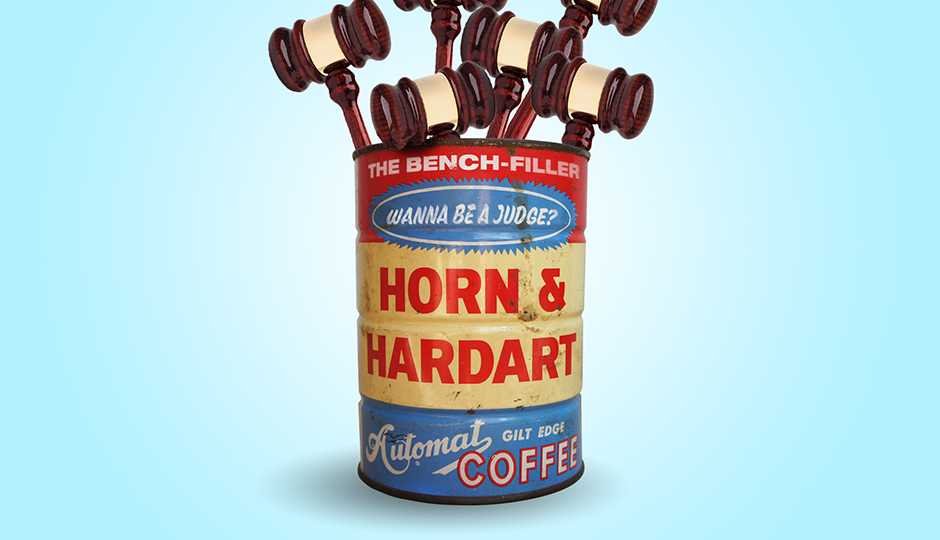Philly’s Coffee Can of Justice

Behold, the (highly stylized, obviously) Coffee Can of Justice. (Coffee can: Hoofandantler.com; gavels: iStockphoto/Thinkstock)
Pennsylvania’s kooky practice of electing its judiciary is proving to be a really stupid idea, and not for the first time.
State Supreme Court Justice Seamus McCaffery was forced into early retirement in October by a cascading array of humiliations (his role as porn emailer-in-chief tops among them). The year before, it was Supreme Court Justice Joan Orie Melvin resigning before being sentenced to three years of house arrest. Philadelphia’s Traffic Court was so overrun with petty corruption that the state legislature felt compelled to abolish it whole.
In a better-functioning state, these sorts of scandals might lead to reform, and the long-overdue chucking of judicial elections in favor of merit selection. (Pennsylvania is one of only six states to elect all of its judges in partisan elections, and more than half the states elect no judges at all.) But not here.
Indeed, Philadelphians will be asked to vote for a bumper crop of judicial nominees in this May’s primary election. Between city and state courts, there are expected to be at least 18 open judicial seats. City voters will also be asked to retain or reject another 24 city judges already on the bench. The ballot will be insane. Between the various city races, there could easily be more than 100 names for voters to sort through.
Of course, most voters will have no clue who most of these people are. It’s asking more than enough of voters to choose a mayor, a sheriff, a controller, city commissioners, council members, a district attorney and their local party committee person. Many voters will opt not to vote for judges at all, or will pick names that seem appealing (respected Japanese-American judge William M. Marutani tended to do well in Italian neighborhoods), or will simply select the first name they see. Odds are the judicial winners will be those who are lucky enough to draw a low-numbered bingo ball when reaching into the Horn & Hardart coffee tin that city election officials have long used to determine ballot position. Draw number one? Congratulations, Your Honor. Pick 26? Try again next time.
The only available end-run around the tyranny of the Coffee Can of Justice (as Philadelinquency’s Christopher Sawyer has dubbed it) is to raise a ton of money, much of it from lawyers with business before the courts, and use the cash to make generous contributions to city ward leaders. In turn, they put you on their endorsement lists, which can be enough to trump a bad draw from the coffee can. Sometimes.
But there’s creeping doubt in the political world about the strength of those ward leaders. The party isn’t much of a force in mayoral elections (see: Brady, Bob; mayoral walloping), and turnout in the governor’s race was abysmal. What if, because of the insane ballot and presumably higher turnout for a mayoral race, ward leaders are unable to deliver even judicial spots?
That would be an awful blow for the party. But is it better or worse than electing judges purely by chance? We may soon find out.